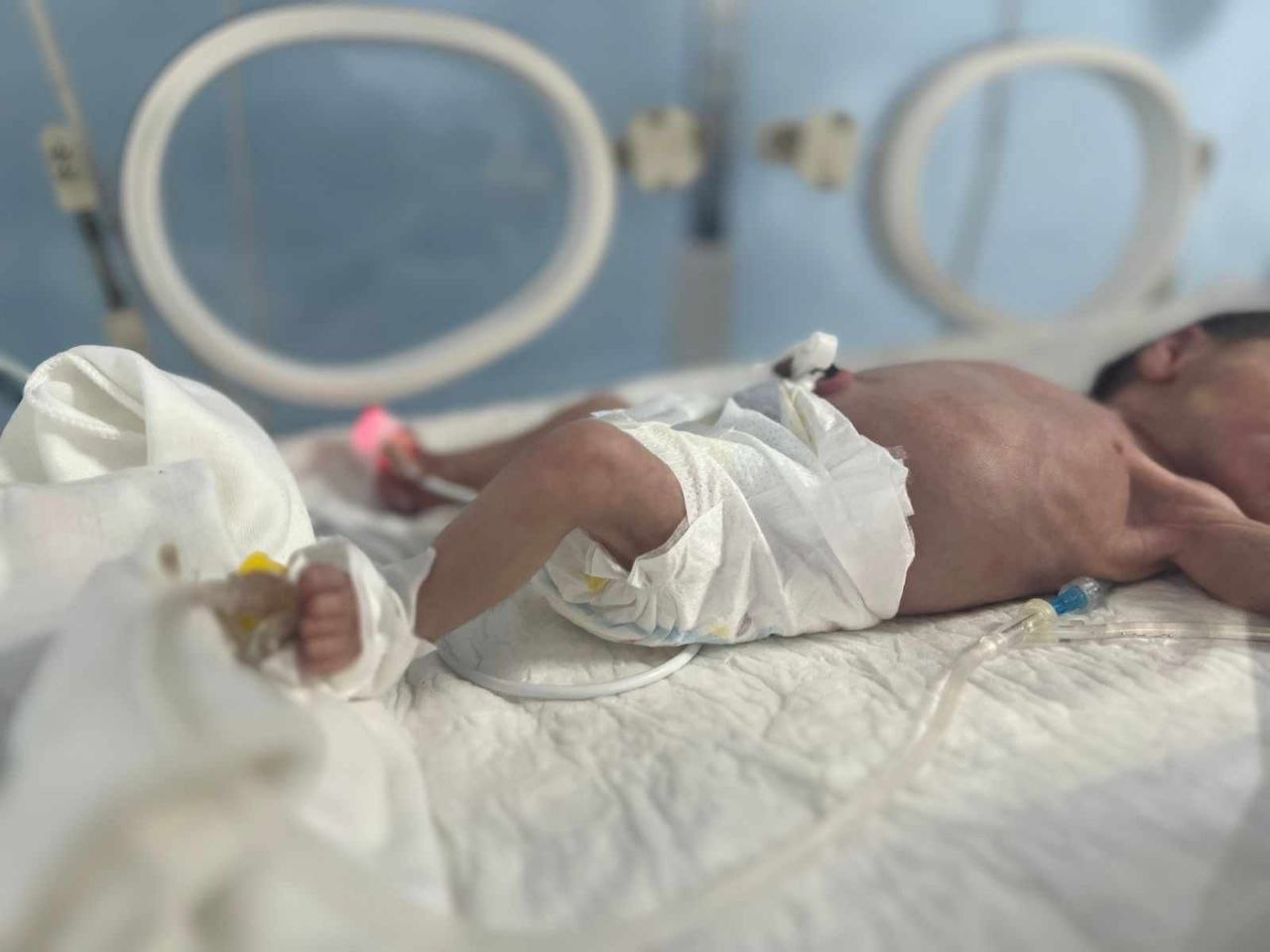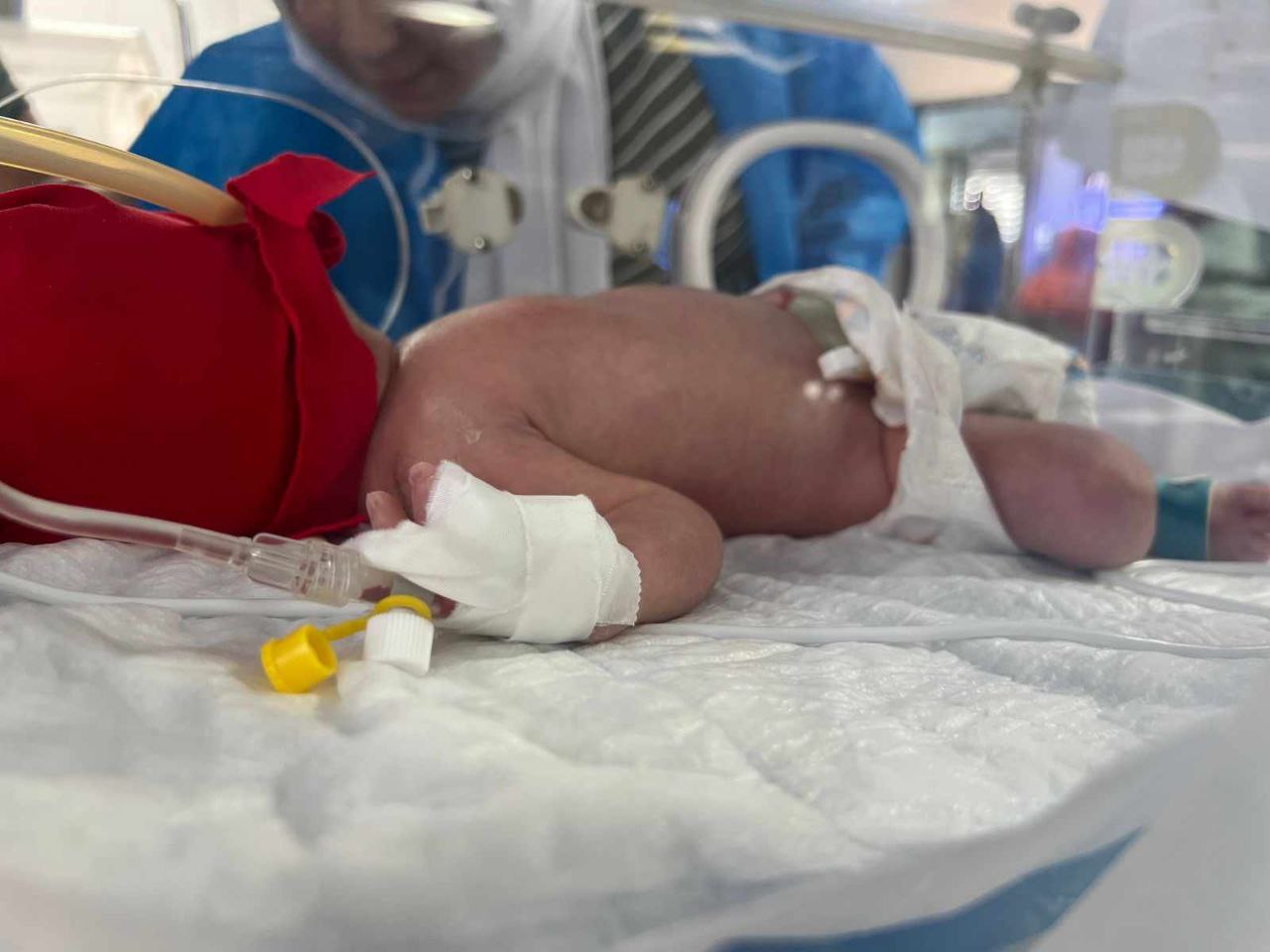After nine months of waiting, Lanja Ali, 30, gave birth to her second stillborn baby, a shock to a family who dreamt of holding their baby.
"I didn't feel any illness during my pregnancy, but sometimes my blood pressure and body temperature were going high. I never believed my baby would die in my womb," she said. "I have done all necessary blood tests and the ultrasound yet no doctor told me my baby is not doing well. I still don't know why my babies were stillborn."
Lanja, who has been married for seven years and has been pregnant twice, says she was under medical supervision until the birth of the child, but it was stillborn. Lanja occasionally takes out the dozens of pieces of clothing and baby supplies stored in her house, smelling them, which brings her happiness and sadness at the same time.
Premature birth and low birth weight are risks faced by pregnant women in Sulaymaniyah, northeast of Baghdad. Experts in pregnant women's care believe the causes are likely related to climate change and environmental pollution.
According to statistics from the maternity hospital in Sulaimani, 819 children were born prematurely out of 3,597 births from January to July.
Inside the Sulaimani Maternity Hospital, Sakar Luqman, 26, sat in a chair watching her baby, who weighed only 900 grams, breathe.
Sakar, who has been married for a year and six months, had a seven-month-old baby born on July 22 who was kept in intensive care.
"As soon as he was born, he was put on a ventilator because he was too small and not in good health," Sakar said. She still needs rest, attention, and medical care as she sits in the intensive care unit.
"I am too upset to see my baby with a ventilator at such a young age, and I don't know how long this situation will continue," she sobbed.
Dr. Pareshan Jaff, a gynecologist and obstetrician, believes that climate change and environmental pollution have a greater impact on pregnant women.
"Many physiological changes occur in pregnant women, and these effects can range from simple to severe, requiring medical supervision," Jaff said.
"Climate change often affects inflammation, vision, blood pressure, respiratory system, and lungs of pregnant women, leading to issues like premature birth, low birth weight, miscarriage, and irregularities in fetal development or defects in fetal organ formation."
According to a report by the United Nations Development Program (UNDP) released on November 21, 2023, the impacts of climate change are affecting women more.
This year, temperatures in Iraq reached up to 50 degrees Celsius, causing pregnant women to sweat excessively and lose a lot of water, leading to dehydration.

Some mothers whose children were born prematurely faced anxiety and frustration after the birth of their children.
Renas Ahmad, 29, after four years and eight months of marriage and visiting six specialists, was told she was pregnant.
Renas was very happy in the early months of pregnancy but felt tired, weak, and unwell, which bothered her. She had to see her doctor monthly, and sometimes every two weeks. "I was so tired; I had forgotten my happiness. I had been waiting for the news of the birth for several years. I kept visiting the doctors and hospitals, and I was sad. I cried a lot and felt lonely," Renas recalls.
During her pregnancy, she constantly felt shortness of breath and sometimes didn't bother thinking it was normal.
One day after visiting the doctor, she was warned that she needed more monitoring because her health and the baby were not improving.
This news worried Renas and her husband.
"My crying, the doctor's words, my husband's anxiety, and shock were a scene I will never forget. We didn't know if our baby would be healthy or not.”
A few days later, the doctor informed Renas that she needed surgery and that keeping the baby in the womb was not in the best interests of the mother and the baby. At seven months and 18 days, their son Landy was born by cesarean section but was kept in the NICU due to breathing problems.
For a month and 13 days, Renas was watching her baby in the incubator being fed, breathing, and crying in the incubator, as mothers were not allowed to stay with their babies according to hospital guidelines.
"They let me see my baby closely twice a day. It was tiring for me, especially as a mother, to see my baby in this situation and leave him. Every night I hoped would leave the hospital for home in the morning," Renas said.
She is an example of a mother whose child was born with complications. Dozens of similar stories unfold in hospitals monthly and annually after children are born with complications.
In June, the World Health Organization WHO raised awareness of the impact of climate change on pregnant women and newborns, emphasizing that the consequences are life-threatening for women during pregnancy.
Complications for infants include high blood pressure, infection, low birth weight and premature birth
Complications for infants include high blood pressure, infection, low birth weight and premature birth, affecting the development of the child's brain and lungs, and the risk of respiratory diseases.
The WHO says that higher temperatures increase the risk of premature birth and fetal death.
Despite their hardships, for some families, children's growth reminds them of their past pain. "Now my son Landy is four years old, active, very energetic, and talkative," Renas said. "Though I suffered too much but now that I see him like this, I forget all the worries I had for him."
Dr. Pareshan Jaff advises pregnant women to go out as little as possible and drink plenty of fluids to compensate for the loss of fluids during high temperatures.
“They also need to use sunscreen and umbrella to limit the effects of high temperature.”
This story was produced as part of a program to enhance the role of female journalists in environmental coverage, organized by the KirkukNow Media Outlet and financially supported by the Ministry of Foreign Affairs of the Federal Republic of Germany.





